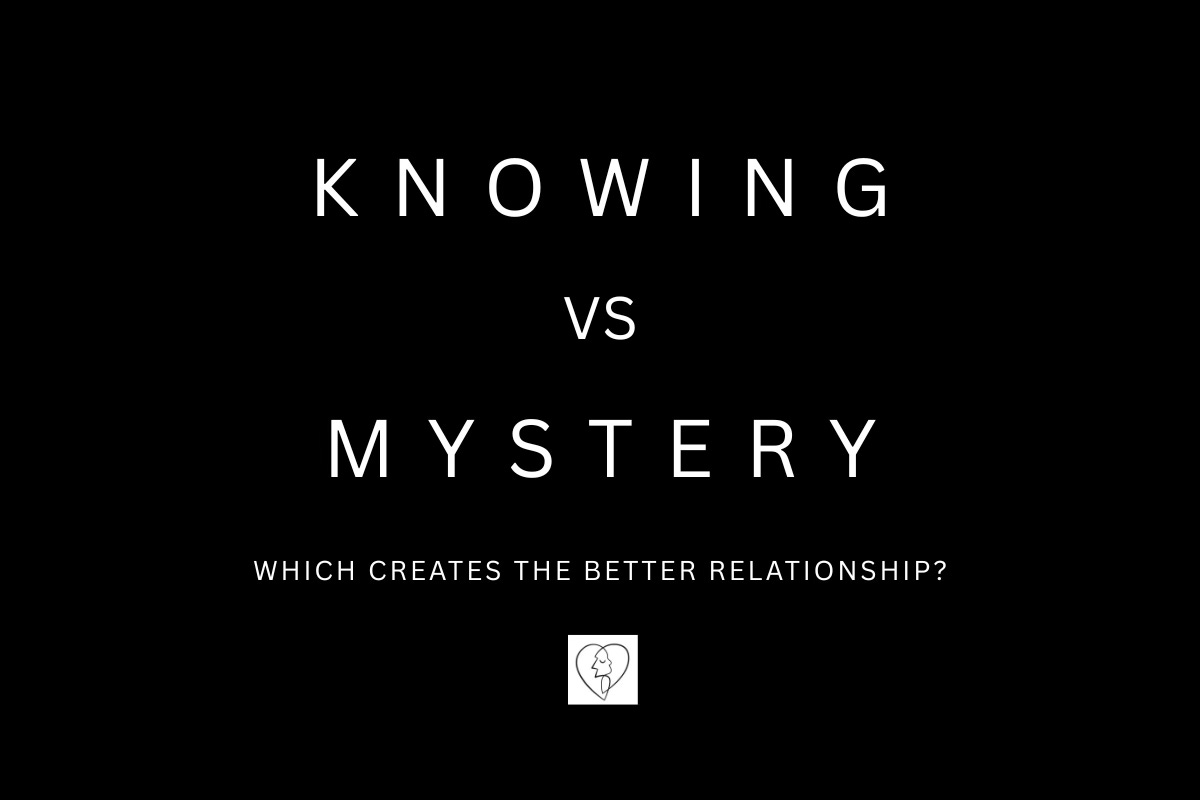This is a repost from a number of weeks ago. The limits of knowing comes up so frequently that I think it deserves another round.
The human need to know runs deep and strong. When we know, it’s easy to convince ourselves that we have control. And having a sense of control is vital to feeling comfortable.
But most of us also understand that we don’t really have control over much of anything. Just watch the news on any given evening. The biggest story is often an event, usually tragic, that unexpectedly turned lives upside down in an instant. Because humans love knowing, few are comfortable with mystery. Someone might argue that the popularity of mystery novels demonstrates a widespread love of mystery, but what’s actually, attractive is resolving the mystery. Most mystery novels end with the mystery solved and the reader knowing what happened.
In a relationship, knowing provides satisfaction and comfort, while mystery entices and energizes. Both are needed. For a relationship to remain vital over time, a portion of it must remain mysterious. Mystery is what draws us to the other. It piques our curiosity, invites us to explore.
The duration of committed relationships can seduce couples into thinking there is an end to exploration—that they can know all there is to know about their partner. They may even assume they’ve arrived at this place of complete knowing, so they end their quest. The relationship then loses energy—and its appeal.
Couples who want ongoing growth and vitality in their relationship naturally seek knowledge about relationship dynamics. They would do well to also cultivate mystery, to embrace the fact that “there’s always more here than meets the eye.” The interest and curiosity that keeps two people actively drawn to each other are fueled by an ongoing effort to resolve the unresolvable. Though this sounds frustrating, it’s the kind of frustration that can motivate.
Valuing the mystery/knowing paradox can go a long way toward reducing conflict. When you accept that some things about your partner are fundamentally mysterious, the need to insist on knowing loses importance. As the temptation to believe you know fades, you are more likely notice how knowing limits curiosity and therefore, relationship growth.
CONSIDER THIS. . .
Comfort with mystery makes knowing more likely. Knowing makes mystery more inviting.



